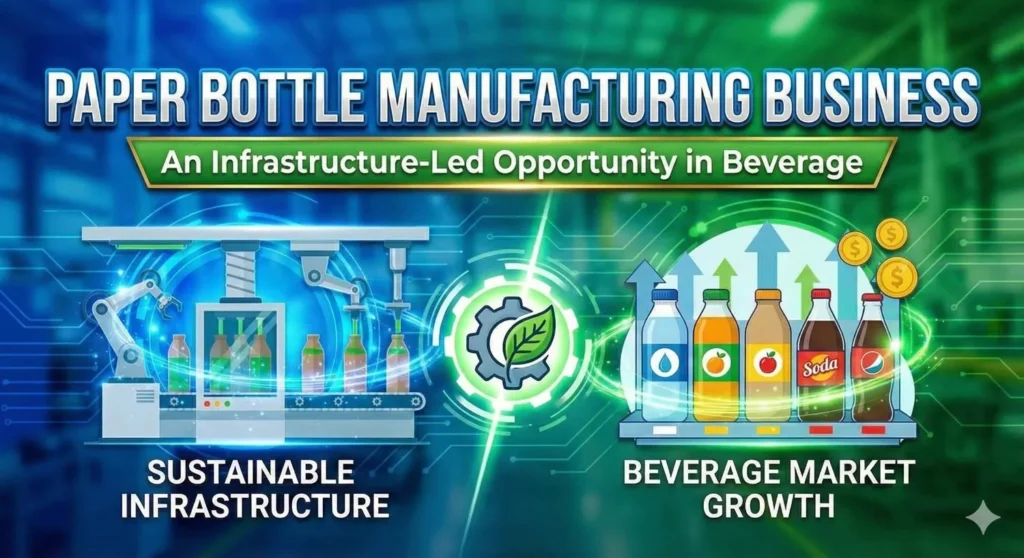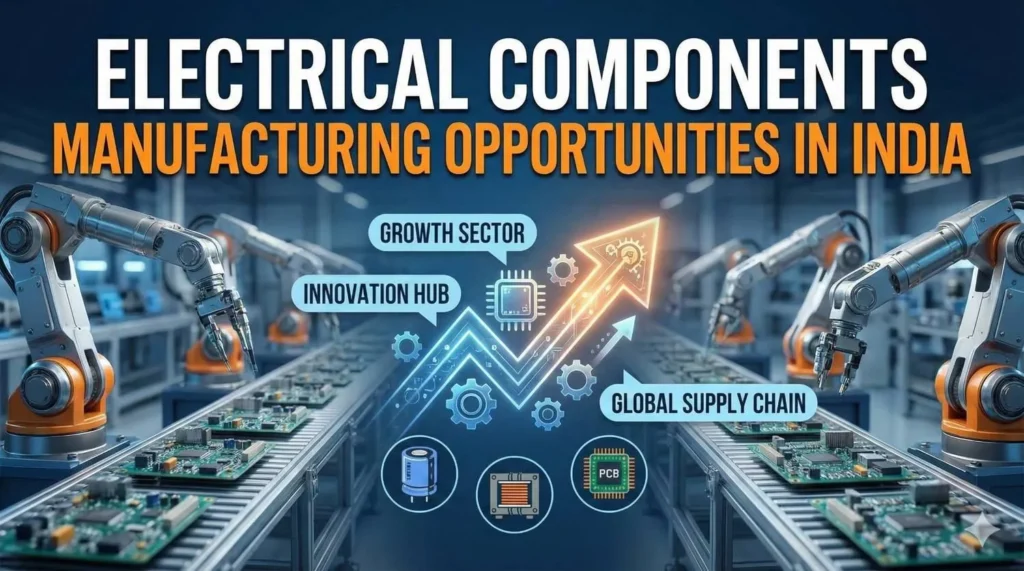India’s food and beverage industry is closely linked to its agricultural sector, which supplies essential raw materials. Technological advancements like smart farming, precision agriculture, and digital platforms have boosted productivity and reduced losses. These innovations help farmers monitor crops, predict weather, and manage resources efficiently. As agriculture evolves, the food and beverage industry gains access to a more reliable and high-quality supply base, unlocking new growth opportunities.
Contents
- 0.1 Key Technologies Driving Transformation in the Agree-Food Sector:
- 0.1.1 Precision Agriculture and Smart Farming:
- 0.1.2 Blockchain for Transparency and Traceability:
- 0.1.3 AI and Machine Learning in Food Processing The food processing industry is getting significant influence from artificial intelligence (AI) and machine learning. Thanks to these technologies, production processes can be streamlined more easily, waste is reduced and food safety is improved.
- 0.1.4 IT (Internet of Things) for Inventory and Supply Chain Management: Io devices can be smart sensors, which will monitor the status of the food products, during storage and transportation. It offers real time updates of temperature, humidity, location, so products can always be stored under the right conditions.
- 0.1.5 The Role of Digital Tools in Improving the Supply Chain:
- 0.1.6 The Impact on Farmers and Rural Communities:
- 0.1.7 Conclusion:
- 1 Frequently Asked Question
Key Technologies Driving Transformation in the Agree-Food Sector:
Precision Agriculture and Smart Farming:
Technology plays a key role in precision agriculture, helping farmers manage crop production at a field-specific level. Tools like drones, GPS, and soil sensors allow real-time tracking of soil health, water use, and crop growth. This leads to healthier, more sustainable crops with higher yields and reduced reliance on chemicals and fertilizers.
For example, soil moisture sensors help use only the necessary amount of water, cutting waste and input costs while boosting profitability. For India’s food and beverage industry, improved crop management ensures a steady supply of high-quality raw materials that meet industry standards.
Our Books
- Manufacture of Food & Beverages with Project Profiles
- The Complete Book on Ginger Cultivation and Manufacture of Value Added Ginger Products
Blockchain for Transparency and Traceability:
The agriculture food supply chain now relies more on blockchain technology to show the product journey clearly and follow its path from start to finish. Through blockchain tracking consumers can see the path their food products take from farming origins to their dining places.
The food and beverage sector in India is undergoing revolutionary transformation thanks to Blockchain technology. The technology reduces fraudulent activities while confirming supplier validity and confirming product standards. When businesses show all product details openly consumers trust more and companies follow food security rules better. When you scan a QR code on a product you can view its journey from farm production to kitchen plate.
AI and Machine Learning in Food Processing
The food processing industry is getting significant influence from artificial intelligence (AI) and machine learning. Thanks to these technologies, production processes can be streamlined more easily, waste is reduced and food safety is improved.
AI based systems can predict demand and optimise supply chain to ensure that food manufacturers always get the ingredients exactly when they need. Moreover, machine learning algorithms can also monitor food products quality during production, thus guaranteeing quality of same products and decreasing possibility of defects.
IT (Internet of Things) for Inventory and Supply Chain Management:
Io devices can be smart sensors, which will monitor the status of the food products, during storage and transportation. It offers real time updates of temperature, humidity, location, so products can always be stored under the right conditions.
For example, temperature sensitive products such as dairy, and meat need to be store in some strict conditions so as to increase freshness and quality. Since IoT technology helps meet these conditions, this leads to lower spoilage and better quality of products that can be delivered to the consumers.
E-commerce and Online Platforms:
Food and beverage companies have been able to reach customers directly through the help of E Commerce platforms and mobile apps. Food products are seeing a rapid growth in online shopping in India with the likes of Big Basket, Gofers and Amazon having a humongous range of food items. Customers have easy to quality products from local and or global brands™ products on these platforms.
Our Project Reports
- How to set up a Chocolate Confectionery Plant (Milk Chocolate, Dark Chocolate, White Chocolate, Orange and Tangy Flavour Toffee, Citric Flavoured Candies & Chocolate Wafers)
- Production of Banana Wafers (Deep Fried Snack Food).
The Role of Digital Tools in Improving the Supply Chain:
The agree food supply chain is a lot of steps, from sourcing the raw materials to the final products you have. Streamlining this process relies on technology to be successful.
Better Material Supply Management:
Sourcing of quality raw material is very important in the food and beverage industry in India to maintain its high product standards. Businesses use technologies like AI and blockchain to be confident materials come from trust sources.
Also Read
Businesses can use smart supply chain management tools to predict demand as well as to change inventory levels. Overstocking is minimize and the costs involved are eliminated, as unsold products will not be maintain. What™s more, digital tools facilitate better relationships with reliable material suppliers so that businesses can have a good source of raw materials
Building Materials for Packaging and Storage:
Building materials used in the food packaging and storage are also influenc by technology. Advanced packaging solutions are now available to companies that extend product shelf life and decrease ecological impact. For example, biodegradable packaging materials along with temperature condition storage solutions are becoming increasingly popular.
The Impact on Farmers and Rural Communities:
Technology is transforming India™s food and beverage industry “ and helping farmers and rural communities. Farm Financial and FIX Programmes featured in the Model Supply Chain programme are digital tools and platforms accessed by farmers to make better decisions on crop management, crop pricing and access to markets.
The new found force to empower farmers has become digital platforms, many startups and government initiatives are tackling the challenge. They provide the price for crops, provide weather forecasts and best farming practices.
The Future of Technology in India™s Agree-Food Sector
Our agree food sector needs urgent technology integration because of its expanding role in India’s future. Recent years will see new technologies including 3D food printing and robotics transform food production methods.
Food and beverage companies in India need to follow new technological developments to remain competitive.
When starting or expanding your food business you need to use technology today.
Also Read
Conclusion:
Technology integration in India€™s agree-food sector is transforming how the food and beverage industry is developing in India. Precision farming, from AI driven food processing has increased efficiency, quality and sustainability in food production. As the need for quality food products increases, those businesses that adopt these technologies will have better resources to supply the consumer expectation and remain competitive in the market.
Contact Us
Frequently Asked Question
What major technologies are driving India’s agri-food transformation?
Key digital drivers include artificial intelligence (AI) for predictive insights, the Internet of Things (IoT) sensors and monitoring devices for precision farming, drones and satellite imagery for field surveillance, blockchain for supply-chain traceability, and digital marketplaces that link farmers directly with buyers.
How do digital tools help farmers improve productivity?
Digital tools give farmers real-time data on weather, soil health, irrigation needs, pest risks, and crop performance. This supported decision-making helps optimise inputs like water and fertiliser, reduce waste, and boost yields. Platforms also offer personalised advisory services and market prices.
Can technology improve market access for Indian farmers?
Yes. Online platforms and e-marketplaces connect producers directly with buyers, reducing dependence on multiple middlemen, opening up wider demand channels, and often yielding better price discovery for farmers.
What role does data and traceability play in the agri-food sector?
Systems like blockchain and integrated data stacks (often part of national digital missions) enhance traceability from farm to fork. This boosts food safety, certifies quality, and builds consumer trust while giving farmers a way to command premium pricing for verified produce.





